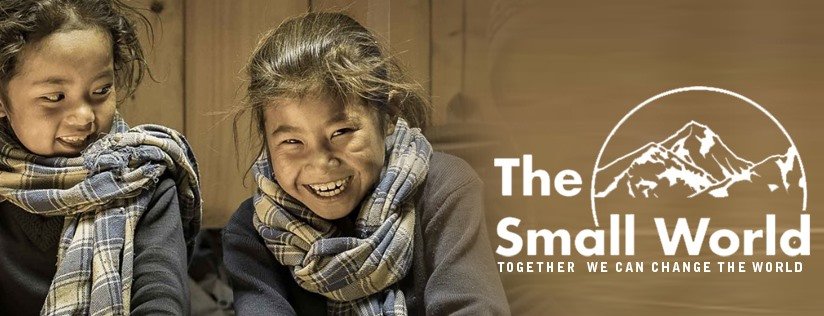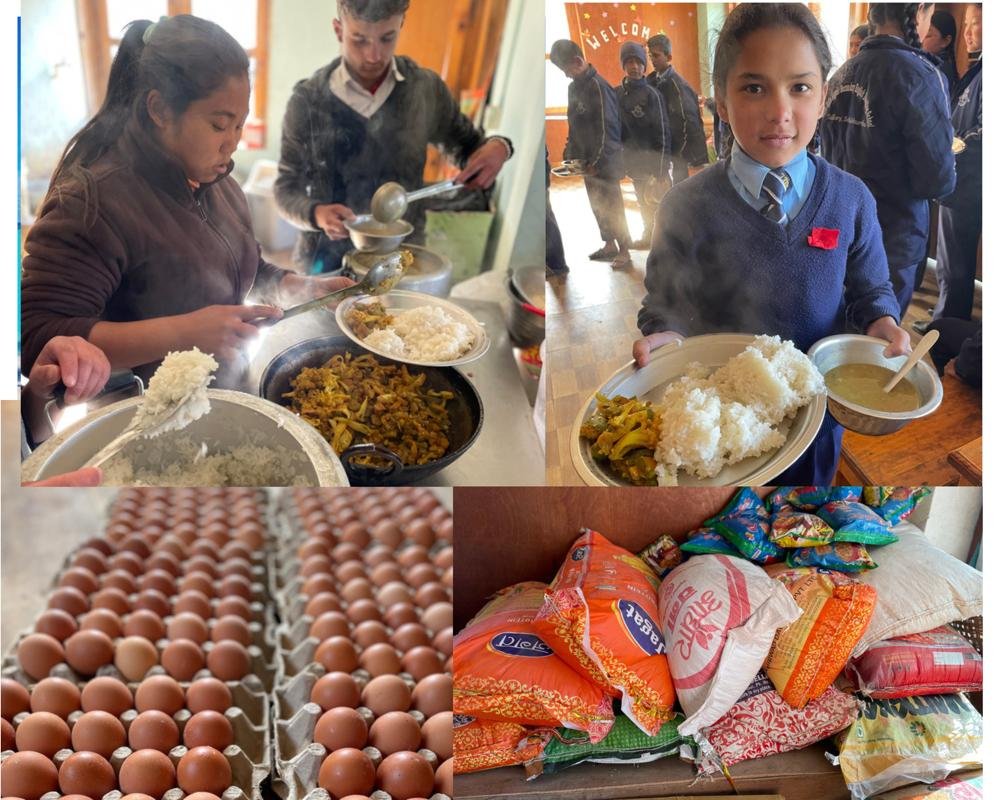Travelers experience Solukhumbu life first-hand with TSW
Every year The Small World’s (TSW) Travel With Purpose program invites enthusiastic, open-minded travelers to witness our groundbreaking work first-hand while enjoying in-depth experiences of Nepal.
Besides helping to make a positive impact on local communities, participants get to feel the warmth and appreciation of the very people who TSW serves. Travelers are welcomed with open arms and treated as family. During their stay, visitors work side-by-side with fellow volunteers as well as community members, forging ahead to achieve a common goal while making new friendships.
The program offers the chance to experience authentic Nepali culture up close and personal and - according to past volunteers - your perspectives will change, your world will expand, and your spirit will be nourished.
Celebrating our new friends from Singapore
2022 was the first year that we hosted volunteers from Singapore, who got connected with us through our good friend, Randall. (He runs Books Beyond Borders, a Singaporean social enterprise that, like TSW, is dedicated to uplifting communities through education.)
As a Singaporean who had visited Nepal a couple of times and developed a deep love for our country, Randall wanted to share his experiences with others.
Our first Singaporean group was shown around Solukhumbu by TSW co-founder, Sanam Sherpa. In addition to marveling at the spectacular Himalayan views, our new friends were delighted to have real interactions with local people and experience an authenticity seldom enjoyed by tourists.
They were not only welcomed to the villages of Loding and places along their Pikey Peak trek, but also into people’s homes and hearts. One trip participant, Gladys Tan, fell so in love with the exceptional beauty and warm-hearted people of this remote corner of the Himalayas that she ended up doing her own fund-raising drive once she returned home.
Gladys raised a $17,000 donation for her birthday from 210 individual supporters
During their time spent volunteering at the Solukhumbu Girls’ Dormitory for higher education students, Gladys got to know 40 girls from different parts of the region. She found that even though the girls all came from a mix of different castes, religions, languages, and cultures, they were united in their mission to pursue an education and chase dreams of becoming role models in their communities.
While staying at the dormitory, Gladys and her fellow volunteers didn’t just exchange life-changing stories with their hosts. They also shared meals, dances, songs, and games while forming new friendships and bonds of sisterhood.
Some of the girls’ stories had such an impact on Gladys that she decided to arrange a fundraising initiative when her next birthday came around. With the help of her friends, colleagues and some corporate donors, Gladys managed to raise a whopping SGD $23,000 (or USD $17,000).
These funds were spent on school uniforms, books, winter jackets, and menstrual hygiene kits. In addition, nutritious food like eggs, milk, meat, rice, and lentils were also bought to feed over 80 children for a month.
This incredible act of generosity went a long way to assist TSW in supporting vulnerable village children at Arhaus Children’s Home and our senior school dormitory girls to have equal access to education. Hopefully, with ongoing help from friends like Gladys and our sustained efforts, we will eventually bridge the educational gender gap in Solukhumbu.
From us at The Small World, we want to say a huge thank-you to Gladys for choosing to come on this journey with us. We are so happy to have you as a friend, supporter, and important part of our family.
Children are excited to have school bags & gifts of Education from the Support of Gladys & friends’ support.
“I am from Waku. It takes 2 days to get here in Salleri from my home. I felt very lucky when I was accepted here for my continued education in grades 11th and 12th. I am studying education science & my dream is to be a teacher back in my village.
For the first time, I met with Westerner volunteers from Singapore in the TSW girls’ education program. It was very hard for me to understand their English & I felt sky but they were very kind & friendly. They help to repair our rooms, we together dance, enjoyed fire camp. I also had an opportunity to learn about Singapore though we had a hard time understanding English and they didn’t know Nepali.
For the first time I have seen girls travel so far and on their own may be one day I will travel to see the world and maybe help other children. ”
We still have many miles to go (to bridge the gender gap)
In rural mountain communities where TSW is active, the gender gap still persists and causes girls and women untold suffering. The gender gap can be seen particularly in the lack of access to education, forced child marriage, sexual and domestic violence, and unrecognized domestic work.
In many Himalayan villages, girls are often denied equal rights to education when compared to boys. When girls are not in school, they can find themselves becoming child brides and vulnerable to violence, abuse, human trafficking, or spending the rest of their lives dependent on their husbands. This cycle of vulnerability is likely to go on if there is no educational intervention at some point.
This is why we are putting so much effort into solving these societal issues, in two main ways. Firstly, we provide kids who have lost their families a safe place that supports learning at the Arhaus Children’s Home. Secondly, we sponsor poor children who are still living with their families, but whose parents cannot pay for their education.
Today, due to knock-on effects of the pandemic - which has created many more orphans in its wake - we are focusing even more intensely on the issues of child education and protection. Our challenge is to get more at-risk children into our schools and homes, while securing those already in school so that no child gets left behind.
No matter what situation we find ourselves in, it is crucial to keep these children in school. These kids have no voice or direct access to assistance in their communities and we must speak up for them. We believe education is the primary solution that citizens of a developing country like Nepal truly need to survive and flourish.
Every year, we support forty (40) girls who reside in some of the most remote villages in Solukhumbu for a higher education program in the Girls’ Dorm.
Our mission and approach at The Small World
We at TSW see ourselves as the link that unites destitute children, girls and families in Nepal to travelers, donors, and partners who have the power to make an enormous difference in the lives of Nepali families, especially their children. We strive to serve as a consistent and genuine connection between those who have the means to help, and those who desperately need help.
Supporters of TSW can be assured of transparency in the application of funds, and enjoy a close association with the people they support.
Our friends like Gladys from Singapore and others from various far-flung corners of the world inspire us every day on the ground. As a locally-run non-profit organization, we strive to create close relationships within every community we work with. We accomplish this by getting to know the individuals involved and listening to their problems, needs and ideas. Only after consulting with them do we start looking for solutions and working together as part of an extended family.
TSW does not approach projects like most large aid organizations do, because we are there on the ground long before the news cameras arrive, and we’ll be there long after the cameras leave.
Thank you, thank you, thank you!
From the bottom of our hearts, we would like to thank people like Randall, Gladys, and all of our supporters from around the world. Without you, our work would quite simply not be possible. Because of your genuine care, generosity, partnership and belief in our mission, today TSW’s work is touching the lives of over 12,000 individuals in the Solukhumbu region.








